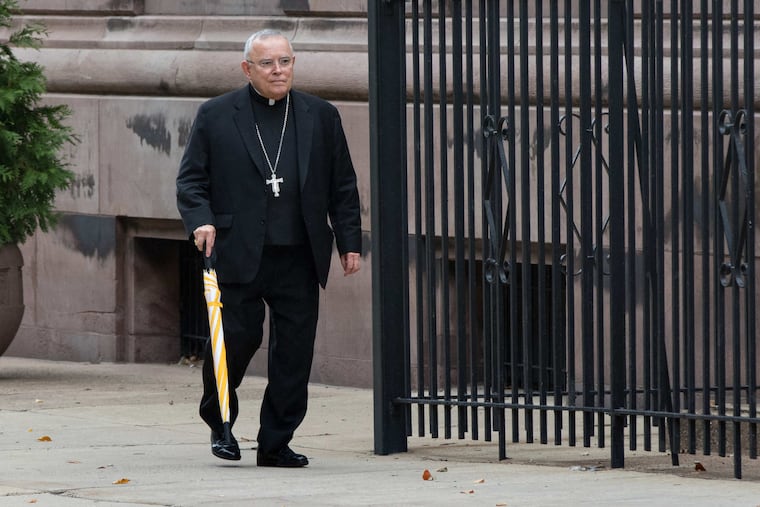Yet again, Archbishop Chaput foolishly misses the mark in a time of crisis | Mike Newall
Archbishop Charles Chaput’s occasional political pronouncements are as much about what he doesn’t say as what he does.

Archbishop Charles Chaput’s occasional political pronouncements are as much about what he doesn’t say as what he does.
Monday, in his weekly column, His Excellency offered his take on the massacres in Gilroy, Calif., El Paso, Texas, and Dayton, Ohio. The archbishop has a painful, personal history in this realm, like so many now: As archbishop of Denver 20 years ago, he buried victims of the Columbine High School shooting.
Yet now, as he did then, the archbishop blames the tide of deaths on “sexual anarchy,” “perverted freedoms" — one must assume he means abortion — and “personal excess.” And while he says he supports some gun-control measures, he says that “only a fool” would think it will solve violence in America. (We’ll get back to that one.)
Here’s what the archbishop didn’t say: Like his president, he didn’t even mention the word Latino, even though he heads a church with an enormous Latino population, many of whom have lived in fear since President Donald Trump began sowing his racist rhetoric against immigrants and minorities. Now they join a new American class: those who have been targeted for who they are with domestic terrorism. The El Paso shooter said his goal was to kill as many Mexicans as possible.
One would think that the leader of that church would want to specifically comfort that flock today. But they don’t get a word.
Neither do victims of gun violence in his own city, which this year has seen its own mass shooting — generally considered any incident where at least four people are shot. We’ve had six. These shootings don’t get the kind of attention others do — because they occur in black neighborhoods, where we have relegated violence to the ordinariness of everyday life. That’s a sin. And it’s another one that doesn’t merit mention on his blog.
It’s almost as if the archbishop takes pleasure in missing the mark at these kinds of moments. To be sure, he has spoken out against the refugee ban and has advocated for the plight of immigrants and the marginalized.
But then he turns around and says we should support the president and wish him success, even if we don’t agree with him. Why would the archbishop ask us to bear this spiritual conundrum? Success for the president is the furtherance of white supremacy.
This is, again, something Chaput fails to mention. The president is using his pulpit to sow hatred, fear, and violence. Chaput is using his to ignore it. The president’s words, already long held up by white supremacists, are now being quoted in killers’ manifestos. Will the archbishop never address the fact that he called us to support this guy? Do I need to pray on that one?
And then we come to the archbishop’s proposed solutions to this crisis.
“Only a fool can believe that ‘gun control’ will solve the problem of mass violence,” he writes, in a country saturated in guns and drowning in violence. No one is saying gun control will solve everything. And there are conversations to be had about the cultural forces behind the tide of violence. But they have absolutely nothing to do with abortion and gay rights. There are many Catholics who would agree with me.
Only fools would dismiss the fact that gun control would prevent some of these killings — make it harder for these mangled minds, whatever their motives, to kill with such ease. In Dayton, the shooter killed nine people and wounded 27 in 32 seconds.
In the end, what Chaput doesn’t say is what’s most disappointing about his leadership of Philadelphia’s church. Time and again, in moments of crisis, he fails to identify the true evil in front of us.